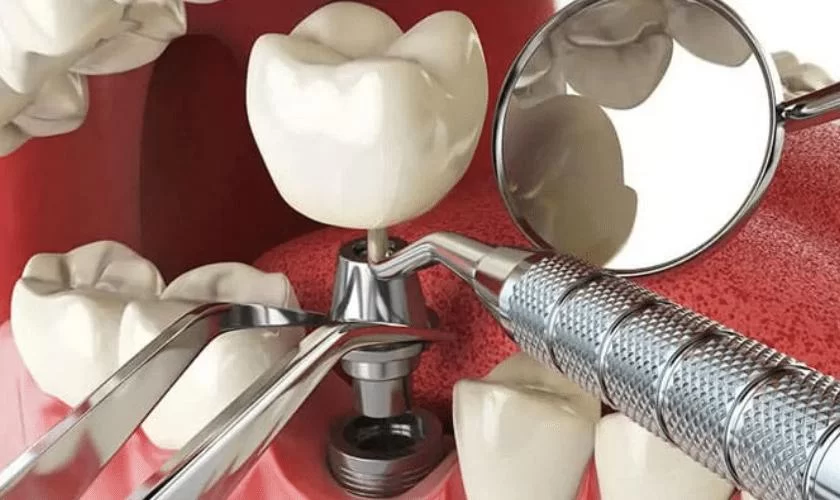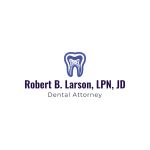
- Importance-of-Dental-Implant-Care
- Step-by-Step-Aftercare-Instructions
- Daily-Maintenance-Tips-for-Dental-Implants
- Common-Challenges-and-Solutions
- Professional-Support-and-Resources
1. Understanding the Importance of Dental Implant Care
Dental implants have revolutionized restorative dentistry, offering a durable and natural-looking solution for missing teeth. However, the success of dental implants doesn’t end after the procedure; proper care and maintenance are crucial to ensure their longevity and to prevent complications such as infections or implant failure.
How to care for dental implants involves more than just routine brushing. It includes a tailored approach to oral hygiene, diet, and lifestyle choices. Neglecting these aspects can lead to peri-implantitis, a condition where inflammation damages the tissues around the implant. This is why understanding thorough aftercare instructions and tips care is essential for every implant patient.
For instance, a patient named Sarah shared her journey after receiving implants: initially, she underestimated the care needed, which led to swelling and discomfort. After consulting her dentist and following specific aftercare guidance, her implant healed well, and she now enjoys a healthy, stable smile. Stories like Sarah’s emphasize how personalized care can make a difference.
2. Step-by-Step Aftercare Instructions for Dental Implants
2.1 Immediate Post-Surgery Care
Right after implant surgery, the mouth is sensitive and prone to irritation. Patients should gently rinse with warm salt water starting 24 hours after the procedure to reduce swelling and promote healing. Avoid vigorous rinsing or spitting to prevent disturbing the surgical site.
Soft foods are recommended during the first week, steering clear of hot beverages and crunchy or spicy items that could irritate the area. Pain management usually involves over-the-counter medication, but following your dentist’s specific instructions is crucial.
2.2 Managing Oral Hygiene Without Damaging the Implant
Brushing near the implant should be gentle but thorough. Using a soft-bristled toothbrush and non-abrasive toothpaste helps protect both gums and implant surfaces. Interdental brushes designed for implants or water flossers can effectively clean hard-to-reach areas, minimizing plaque buildup.
2.3 Monitoring Healing and Signs of Complications
Patients should regularly inspect the implant area for signs of infection such as persistent redness, bleeding, or unusual pain. If any of these symptoms occur, prompt consultation with the dentist is necessary to address potential problems before they escalate.
3. Daily Maintenance Tips for Long-Term Implant Success
3.1 Consistent Oral Hygiene Routine
Maintaining excellent oral hygiene is the cornerstone of implant care. Twice-daily brushing combined with daily flossing helps keep the gum tissue healthy and prevents bacterial growth. Many dentists recommend using antimicrobial mouth rinses as part of the routine for extra protection.
3.2 Lifestyle Adjustments
Avoiding tobacco products and limiting alcohol intake are essential habits for implant longevity. Smoking, in particular, can impair healing and increase the risk of implant failure. A balanced diet rich in vitamins and minerals supports tissue health around the implant site.
3.3 Scheduling Regular Dental Check-Ups
Professional cleanings and implant check-ups should be part of your regular dental visits. During these appointments, your dentist can perform specialized cleaning, assess the implant’s stability, and detect any early signs of trouble. Staying proactive helps preserve your investment and oral health.
4. Addressing Common Challenges with Dental Implant Aftercare
4.1 Dealing with Sensitivity and Discomfort
Some patients experience mild sensitivity during healing. Using toothpaste for sensitive teeth and following the dentist’s recommendations for pain management typically resolves this issue. If discomfort persists, further evaluation is important.
4.2 Handling Implant Mobility and Loosening
While implants are designed to integrate firmly with the jawbone, trauma or infection can cause mobility. Early detection through regular care and dental visits can prevent permanent damage. In certain cases, corrective procedures might be necessary.
4.3 Preventing Peri-Implantitis
Peri-implantitis is a major concern and can be prevented by meticulous hygiene and lifestyle control. If detected early, treatments such as deep cleaning or antibiotics may save the implant.
5. Accessing Professional Support and Resources for Implant Care
For anyone seeking comprehensive guidance on how to care for dental implants, Dentistry Toothtruth offers expert advice, products, and services tailored to individual needs. Their team specializes in providing the best dental implant aftercare instructions and tips care, ensuring patients receive both education and practical tools for optimal implant health.
Whether you’re newly implanted or maintaining existing dental work, connecting with professionals and trusted resources empowers you to protect your smile. Real patient testimonials confirm that such support greatly enhances confidence and care quality.







 Christopher Ross5.0 (1 review)
Christopher Ross5.0 (1 review) Robert B Larson, LPN, JD - Dental Attorney4.0 (5 review)
Robert B Larson, LPN, JD - Dental Attorney4.0 (5 review) Dental Arts of South Jersey4.0 (468 review)
Dental Arts of South Jersey4.0 (468 review) Evergreen Dental Inc2.0 (22 review)
Evergreen Dental Inc2.0 (22 review) Healthcare Network | Dental Care3.0 (3 review)
Healthcare Network | Dental Care3.0 (3 review) Canyon Dental5.0 (231 review)
Canyon Dental5.0 (231 review) The Importance of Oral Health Education During Pregnancy for a Healthy Pregnancy
The Importance of Oral Health Education During Pregnancy for a Healthy Pregnancy Best Tips for Brushing Your Teeth Properly for Healthy Gums: Essential Techniques for Oral Health
Best Tips for Brushing Your Teeth Properly for Healthy Gums: Essential Techniques for Oral Health Why Skipping Dental Checkups Can Lead to Bigger Oral Health Problems
Why Skipping Dental Checkups Can Lead to Bigger Oral Health Problems Advantages of Porcelain Dental Restorations
Advantages of Porcelain Dental Restorations How Can Diabetes Cause Tooth and Gum Problems? Preventing and Managing Oral Health Issues
How Can Diabetes Cause Tooth and Gum Problems? Preventing and Managing Oral Health Issues Healthy Habits for Promoting Good Oral Health and Hygiene: Tips for a Healthy Smile
Healthy Habits for Promoting Good Oral Health and Hygiene: Tips for a Healthy Smile